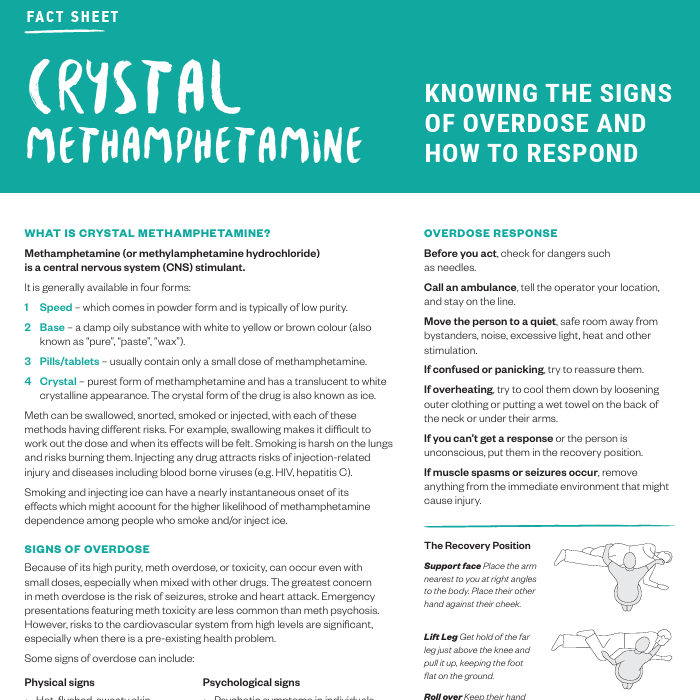
Methamphetamine (or methylamphetamine hydrochloride) is a central nervous system (CNS) stimulant.
Because of its high purity, meth overdose, or toxicity, can occur even with small doses, especially when mixed with other drugs. The greatest concern in meth overdose is the risk of seizures, stroke and heart attack. Emergency presentations featuring meth toxicity are less common than meth psychosis. However, risks to the cardiovascular system from high levels are significant, especially when there is a pre-existing health problem.
Disclaimer: We do our best to review apps according to our guidelines, but due to the nature of interactive tools we cannot test every feature and update. DEN highly recommends reading recent reviews on any app you download, and make sure to only download apps from official stores like Google Play and the App Store.
Disclaimer: This resource is from a source outside of Australia: it may contain links to services not available locally, unfamiliar terms, and refer to laws that do not apply in Australia. It has been included on CODE as it contains useful information despite some content not being locally relevant.
Disclaimer: This resource is from a source outside of Tasmania: it may contain links to services not available locally, unfamiliar terms, and refer to laws that do not apply in our state. It has been included on CODE as it contains useful information despite some content not being locally relevant.






